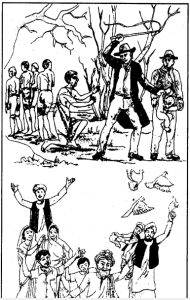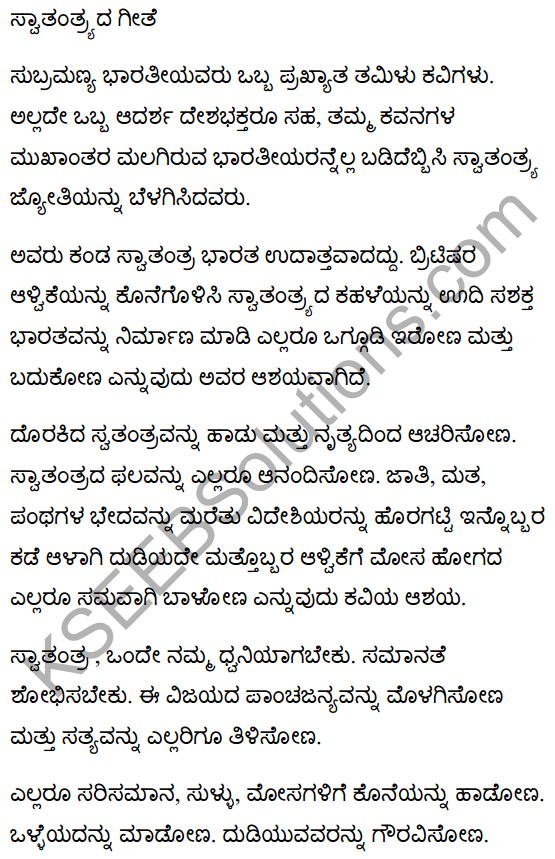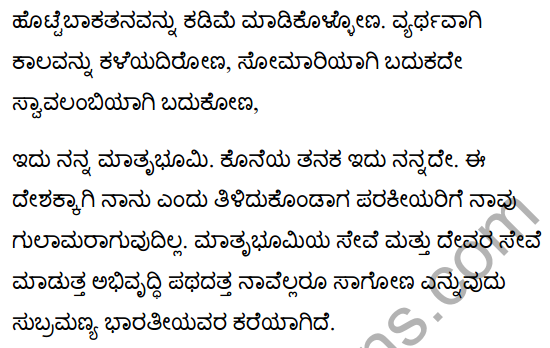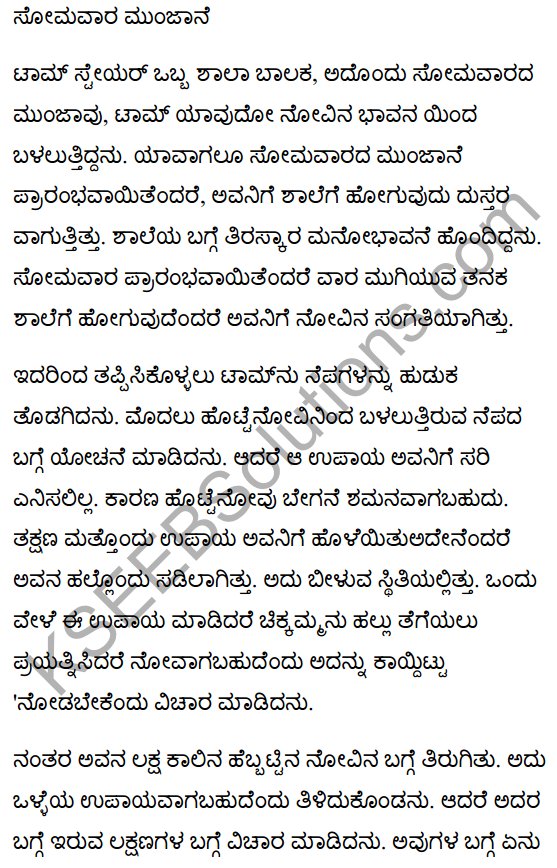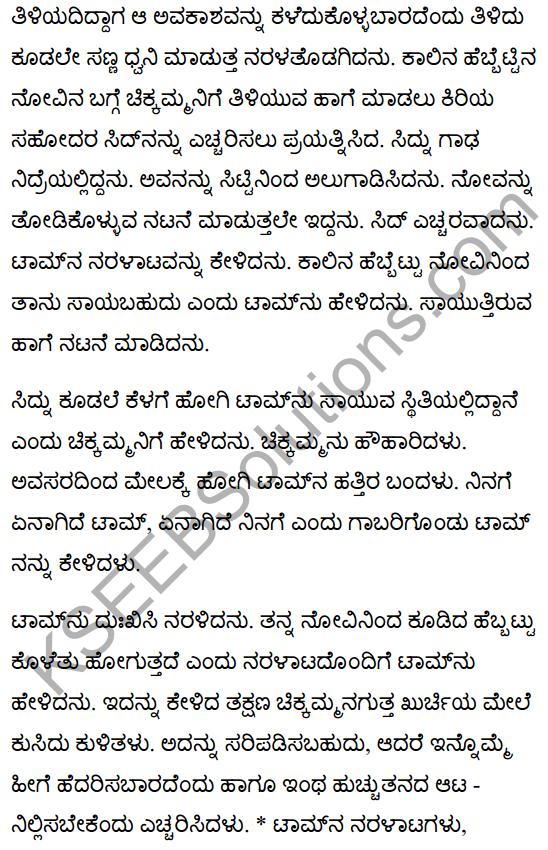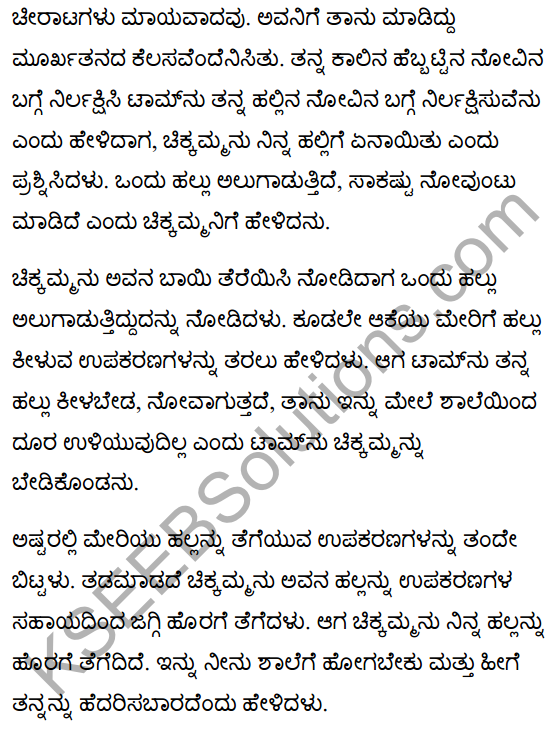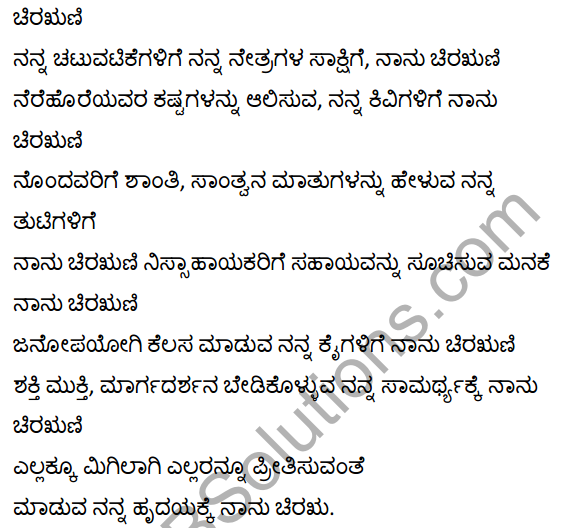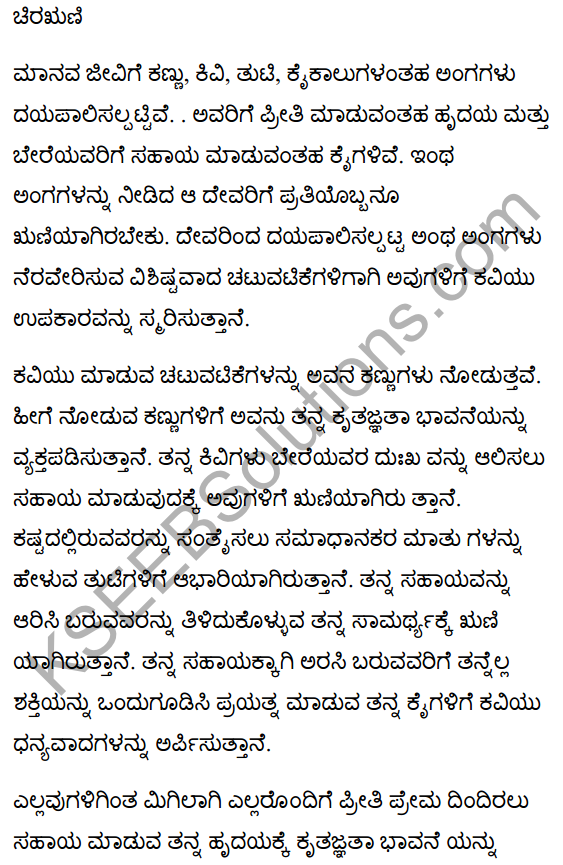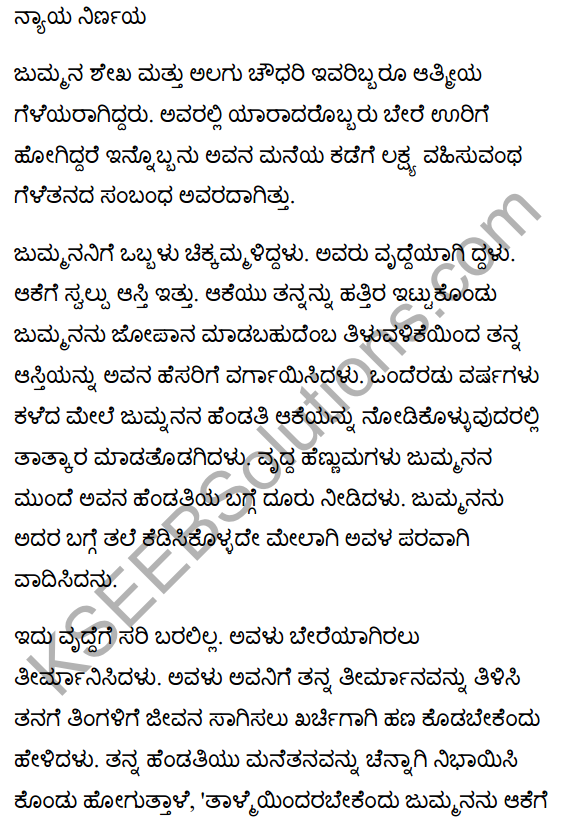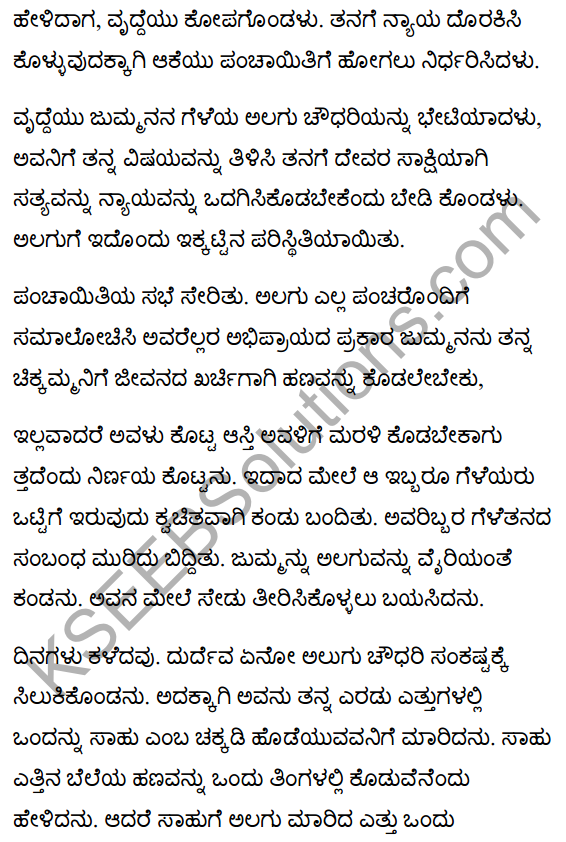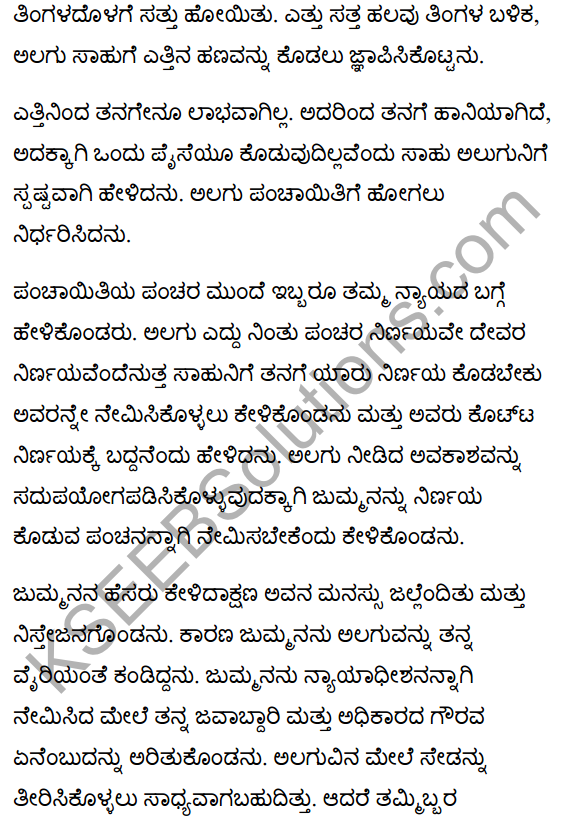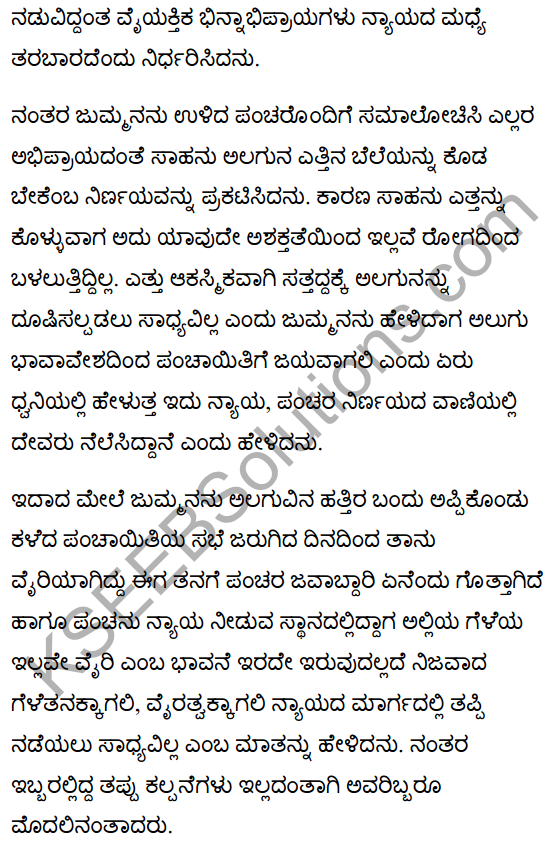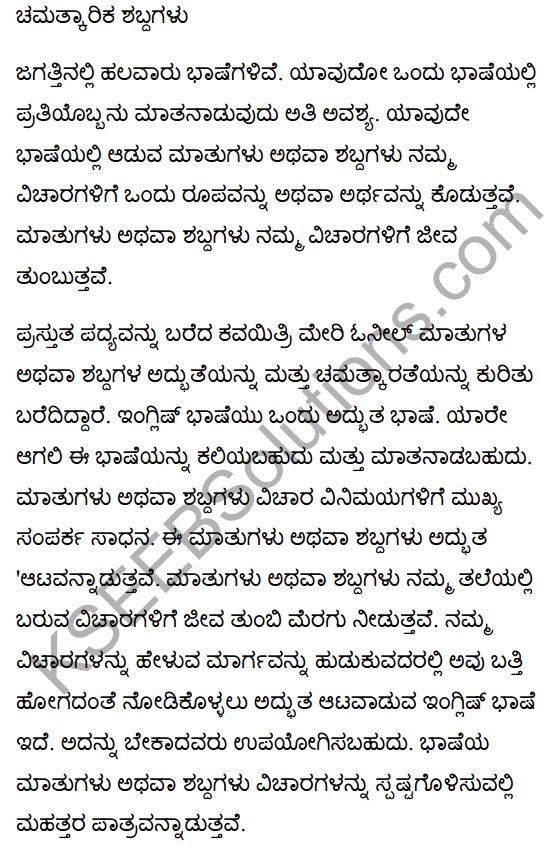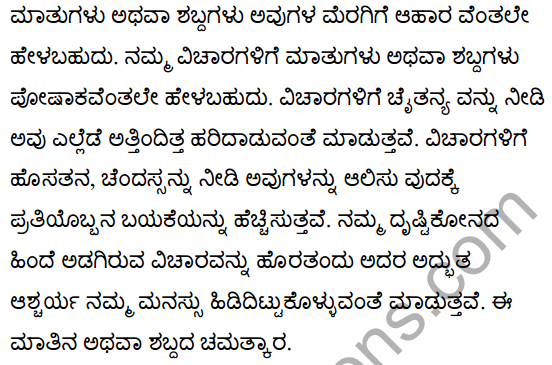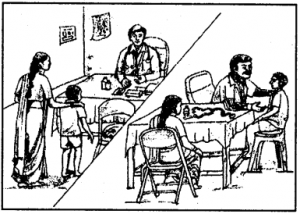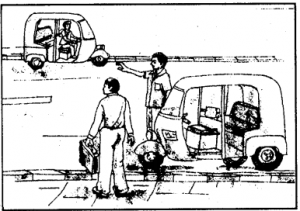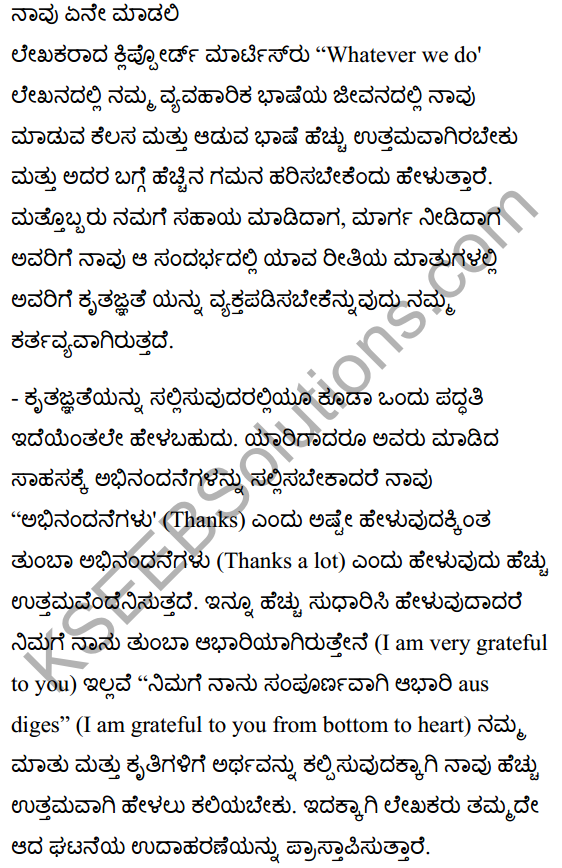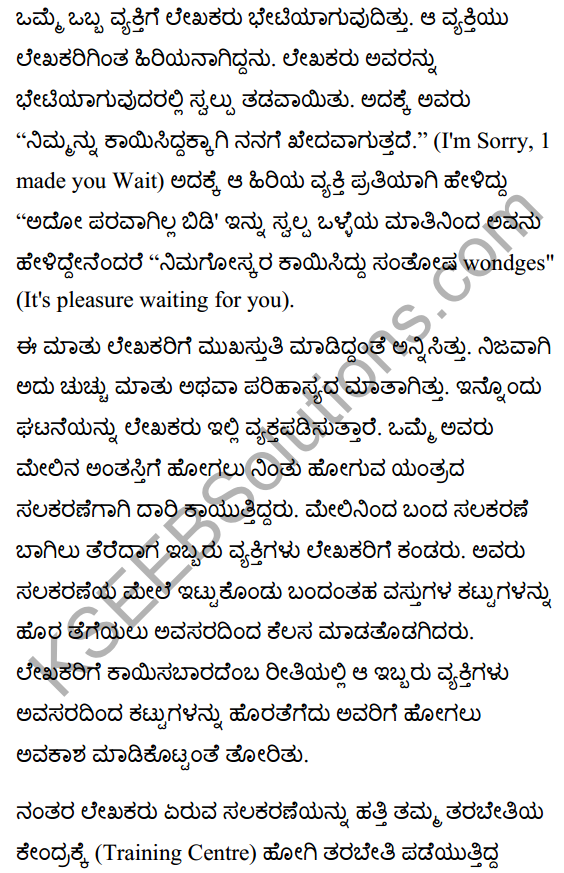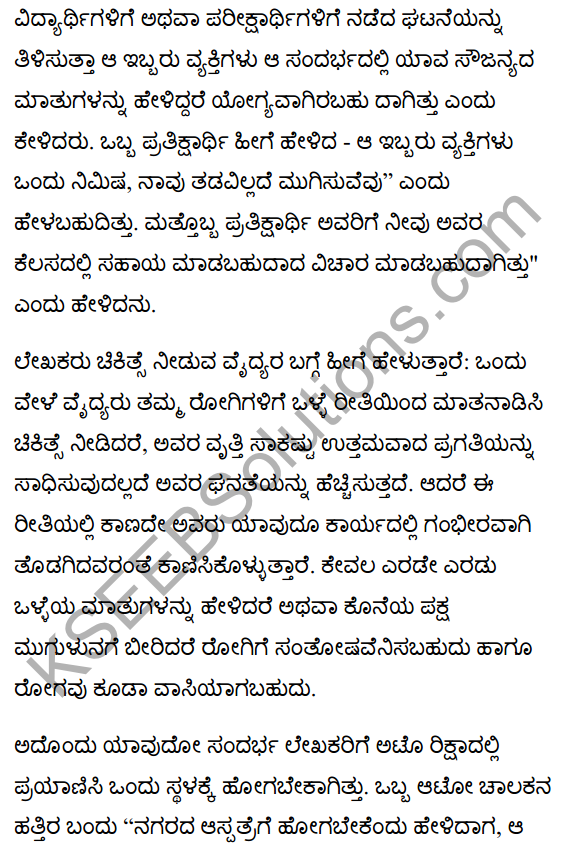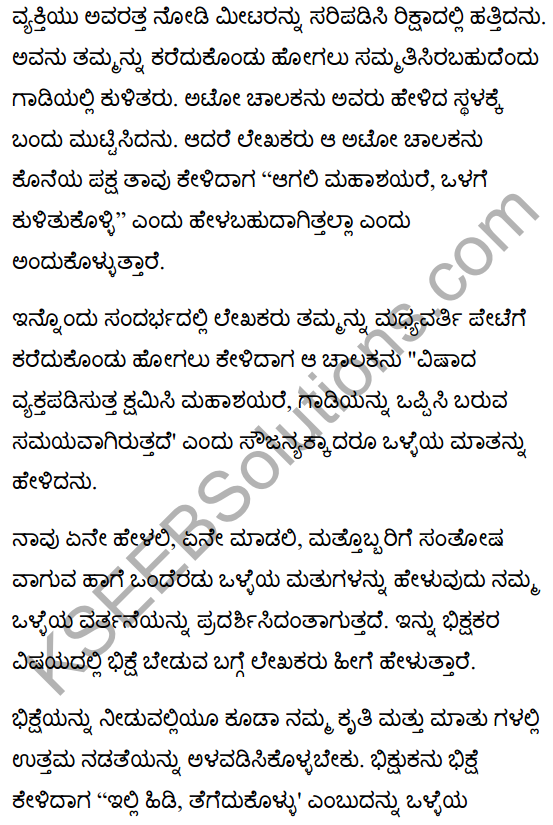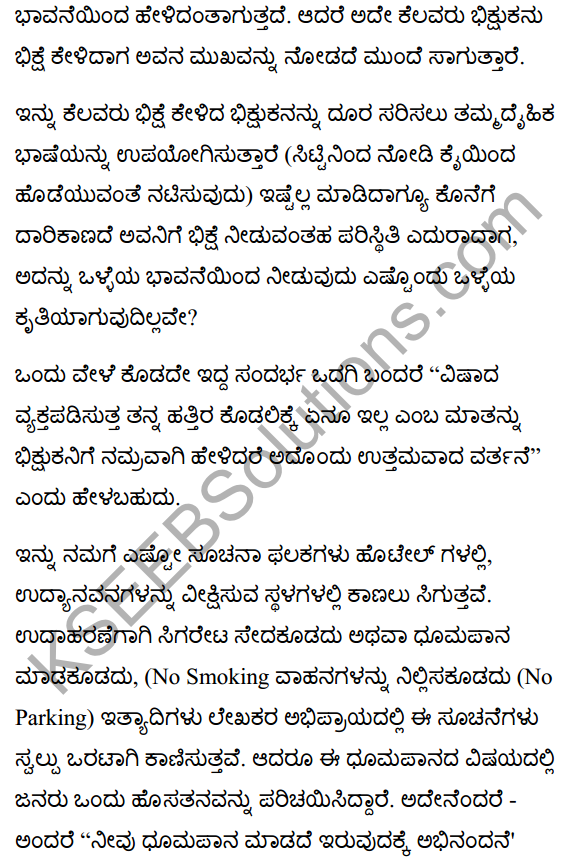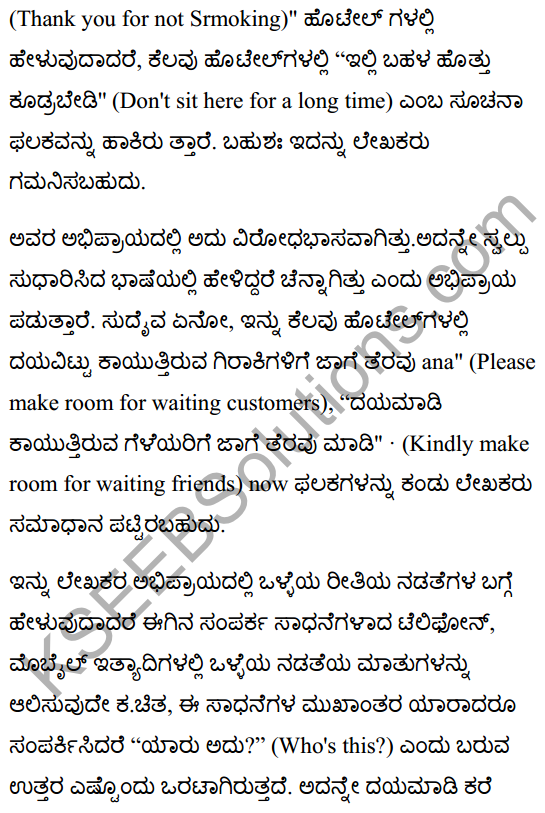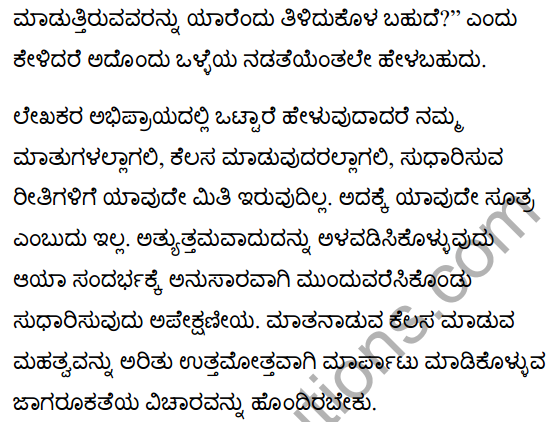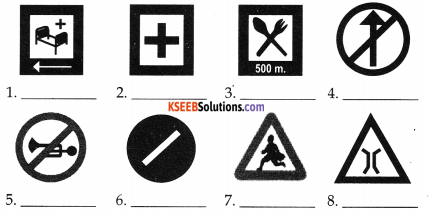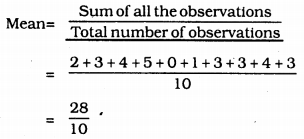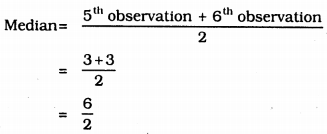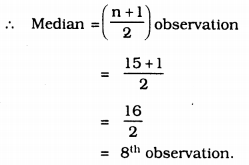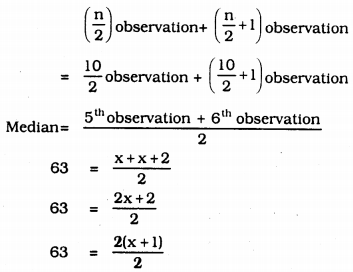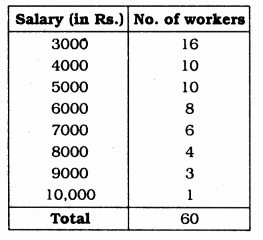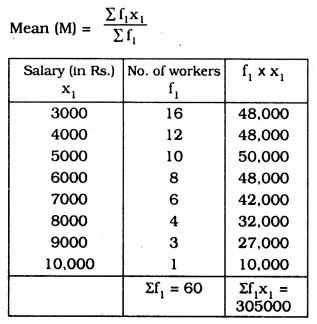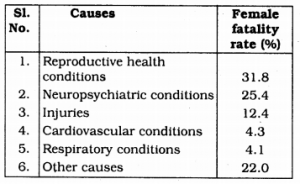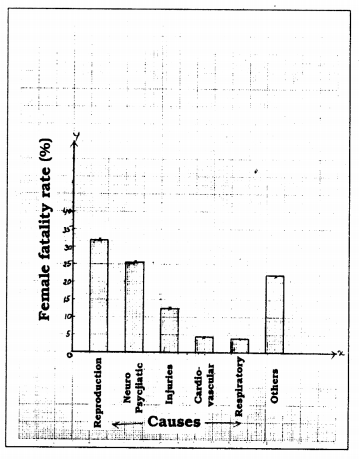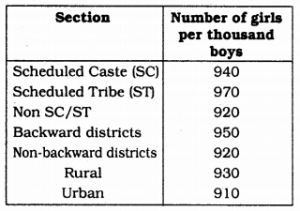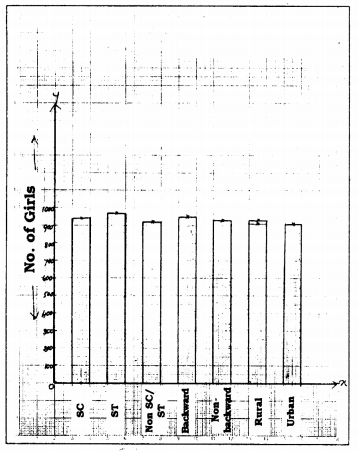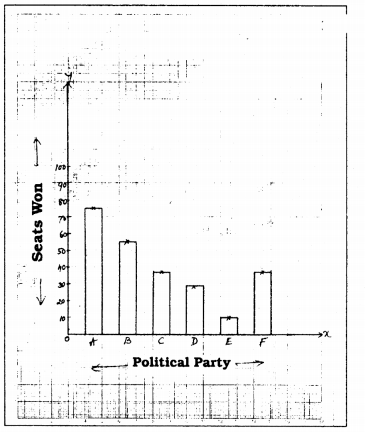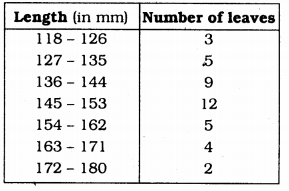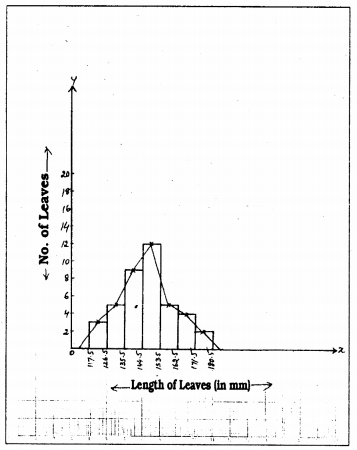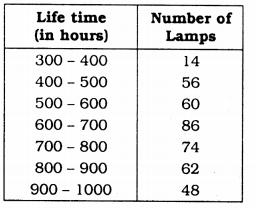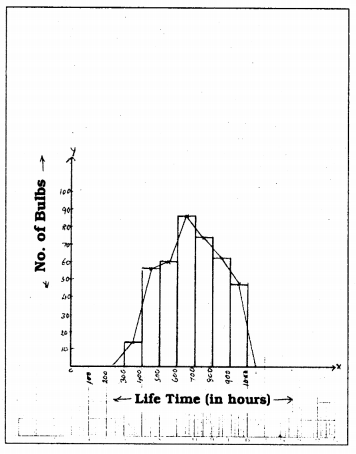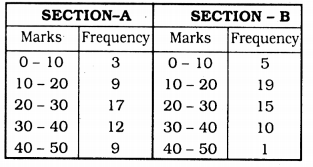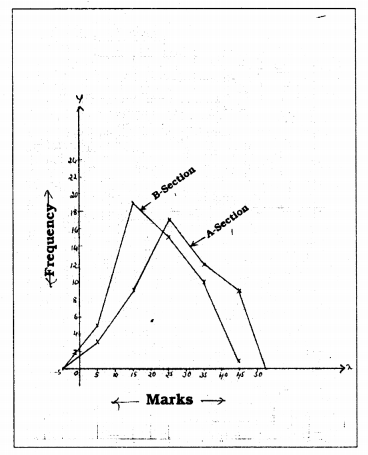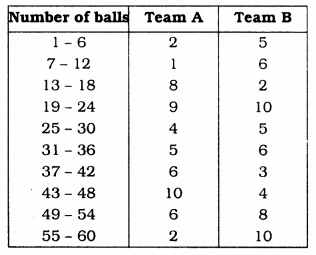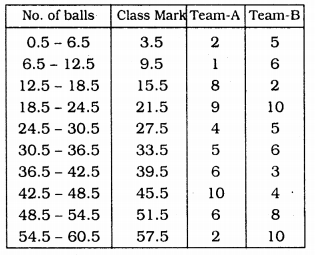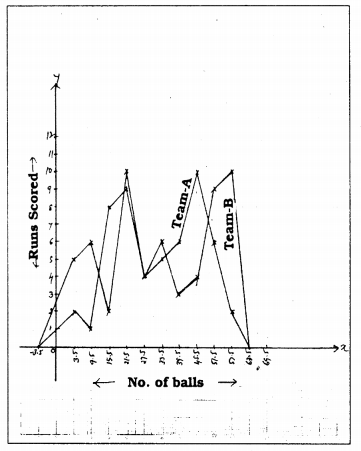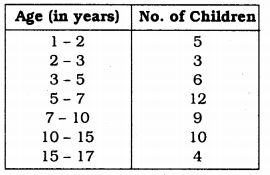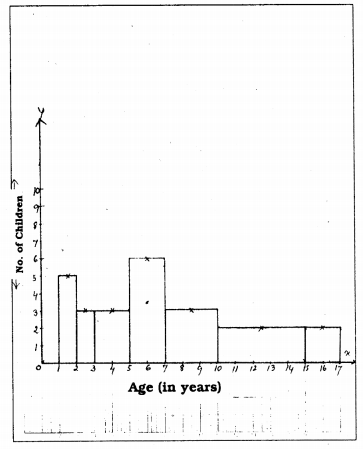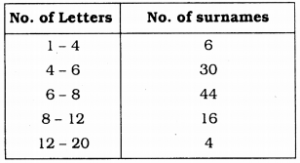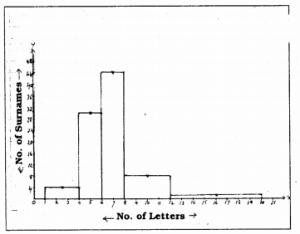By understanding the academic needs we have prepared the Karnataka State Board English Class 9 Solutions Chapter Wise. Our aim is to help the students by providing the question and answers chapter wise and help them to gain a good score in the exams. Before you start your preparation go through the chapters covered in this academic. So go through them and Download KSEEB Solutions for Class 9 English Letter Writing Question and Answers Pdf for free.
Karnataka State Board Class 9 English Letter Writing
Write a letter to a friend describing your hobby.
Puttur
13 June 2019
Dear Rani,
How are you? In spite of being in touch on Whatsapp, I have decided to write to you because I want to write in detail about my new passion. Do you know something? I have taken to the hobby of glass painting! I know that you can’t believe it because when I was your classmate in the VIII Standard, I was not at all artistic. I was out and out a sportsperson.
But, of late, whenever I have some free time that I spend indoors, I sit and paint all the glass bottles that mom has washed and kept. It is not very difficult and not very expensive either. When you place the finished products at strategic points in the house, the house looks very elegant indeed!
My sister also got interested in the hobby and now my neighbour’s children come to me to learn. They pay me a nominal amount and with that amount, I buy the paints that I need for my own artistic work.
Aren’t you surprised as to how I achieved proficiency in this? Thanks to the internet! Everything is available on the internet. There are effective demonstrations on YouTube. The digital world is really fascinating! If you want to give it a try, I will share the links with you. There are many; but not all are that good.
What are your activities now? Do write to me when you find some time. It feels good to go back to the old method of letter writing.
Lots of love.
Nanditha
![]()
You are planning to celebrate a festival in your house. Write a letter to your cousin asking her/him to come over with some things that you need for the arrangements.
Kalasapura
30 January 2019
Dear Bimala,
Glad to know that you have come down from the U.S. Very happy that you will be here till Ugadi. This time I am planning to celebrate Ugadi on a grand scale. I want all the family members to come together as they welcome the Hindu new year. Now that you are here, can I ask for your help? I want to decorate the house in a traditional manner.
I am planning to have rangoli of different types. I want rangoli powder, grain and flower petals. I know that you are very artistic. I remember you winning prizes in your student days. Can you come home a day earlier and decorate the courtyard with rangoli? If you cannot, don’t worry.
I can make other arrangements. But, if you can, your responsibility increases as I want you to get all the items that you need for the rangoli. Whether you can put the rangoli or not, make sure that you will surely be with us on the day of Ugadi.
Looking forward to your visit,
Your loving cousin,
Shanthi
To the Principal of your school, requesting him/her to provide you with a bonafide certificate, enabling you to join a computer course.
Ms. ABC
IX Std.
XYZ School
Bengaluru
14 July 2019
The Principal
XYZ School
Bengaluru
Respected Sir,
Subject: Bonafide Certificate
I am a student of IX Standard and I write this letter to make a request to you. I want to join a computer course at Cryonics Computers. One of the criteria of admission is that I submit a bonafide certificate from my school. I request you to issue me one.
I thank you sincerely.
Yours faithfully
ABC
To the Postmaster informing him of your change of address.
ABC
B – 405, Swasthik Apartments
Gandhi Bazaar Main Road
Bengaluru – 560 004
3 May 2019
The Postmaster
Basavanagudi
Bengaluru
Dear Sir,
Subject: Change of address
This is to inform you that I have changed my residence to the above mentioned address in Gandhi Bazaar. My previous address under your jurisdiction was as follows:
A – 05, Apex Residency
Basavanagudi
Bengaluru – 560 004
So I request you to make arrangements for all correspondence to be redirected to my present address. I apologise for the inconvenience caused.
I thank you in anticipation of your favourable action.
Yours faithfully,
ABC
![]()
To the Manager of a Bank, asking him/her information regarding the hank loan facilities for further studies.
ABC
173, ‘Shri Nivasa’
M.G. Road
Chikmagalur
19 August 2019
The Manager
HDFC Bank
Chikmagalur
Dear Sir,
I am a SB account holder of your bank since 2015 and my account number is 1173001027156. I am currently pursuing my Engineering Course. I am in the final year and would like to pursue my MBA in one of the reputed universities in the U.S.A. This would mean a huge investment. Hence, I would like to know whether I can avail of the educational loan for students. Please let me know the rate of interest too.
Hope to hear from you soon.
Thank you.
Yours faithfully,
ABC
Write a letter to your friend inviting her to attend your birthday party.
27, 4th cross
Basaveshwara Extension
Belagavi
7 June 2019
Dear Kavitha,
It’s such a long time since we have corresponded with each other. I suppose both of us were caught up in our world of assignments and tests. I think we must take some time off to catch up with each other.
On the 18th of this month, I’ll be celebrating my birthday at Ocean Pearl with a few of my friends and relatives. As it’s my 15th birthday, my parents want to make it very special for me.
As you are a special friend, I invite you to be with us. The party starts at 6 p.m. and will end at 9 p.m. with dinner. I promise you that it will be fun. My sister has kept a number of party games ready. You can be a lucky winner too. I’ll be very happy if you can make it with your family. Please inform Mom and Dad that I’ll be disappointed if they don’t make it.
One last word – please don’t get any gifts. Your presence will be my biggest present.
Hope you won’t disappoint me. I’ll be grateful if you could drop a line confirming your presence by the 16th.
Love and best wishes.
Yours,
Suma
Write a letter to your friend describing the annual day celebrations in your school.
23, B. H. Road
Chikkamagaluru
18 October 2019
Dear Krithi,
How have you been? Sorry for not writing earlier. I was busy with my Annual Day celebrations.
We take a lot of trouble over our Annual Day celebrations. This time too we had a grand celebration. Can you guess who our chief guest was? You will probably be amused to know that we had comedian Kapil Sharma as our chief guest. He regaled the audience with his witty remarks. The speech had a good message too for the students. The entertainment programme was too good. We had a dance drama on the theme of light as this year is the International Year of Light.
I’m glad to inform you that I received five prizes, three in academics and two in extra-curricular. They gave us cash prizes and I’m richer by Rs. 1000!
What news from your side? When is your Annual Day? Will you be doing anything special? Do write to me about all the details. Bye for now.
Yours,
Anitha
![]()
Write a complaint to The Commissioner, BBMP, Bangalore, about the bad condition of roads in your locality.
Solomon David
271, Palm Grove
Miller’s Road
Cox Town
Bangalore – 45.
3 June 2019
The Commissioner
BBMP
Bangalore.
Dear Sir,
Subject: Request for road repair.
I am a resident of Cox Town, Bangalore. I wish to bring to your notice the poor condition of the roads in our area.
Almost all the roads in our area have developed deep ditches. It is very difficult to drive, whatever might be the means of conveyance. During rains in particular, water collects in the ditches. It continues to stagnate there unless it gets dried by the sxm. These ditches consequently have become breeding grounds for mosquitoes.
The matter has been brought to the notice of the local ward office but no action has been taken so far.
I request you to resolve the matter at the earliest.
Thank you.
Yours faithfully,
Solomon David
Write a letter to the Editor, The Hindu, about accidents caused by rash driving of vehicles in your town.
Ramachandra
“Priyadarshini”
2nd Block, Jayanagar
Bengaluru.
27 July 2019
The Editor
The Hindu
Bengaluru.
Dear Sir,
Enclosed please find my views on the rash driving of vehicles in Bengaluru. I am of the opinion that there should be awareness programmes regarding this and as the first measure towards this I have put down my views. I request you to publish the same in your esteemed daily.
Thank you!
Yours faithfully,
Ramachandra
Encl: 1
Driving licence is given to people who exhibit their ability to control a vehicle, following all the traffic rules. But, the rash driving that is seen in every part of the city nowadays makes me wonder whether 75% of the drivers deserve the licence at all! Driving is not just an act. It is also a tact. It has both physical and psychological aspects to it.
None of us can think of ourselves as the most powerful beings the minute we are behind a wheel. We must remember that rash driving jeopardises not only the life of the driver but also of a whole lot of innocent people. Rash driving should be dealt with very stringently and heavy fine should be imposed on the defaulters. None can play with safety.
Ramachandra
Bangalore
We hope the information prevailed in this article is helpful for all the students of Class 9. The Karnataka State Board Solutions for Class 9 English Letter Writing Question and Answers pdf enhance your skills and score good marks in the exams. Stay tuned to get the latest information about the KSEEB Solutions Class 9 English Solutions.
